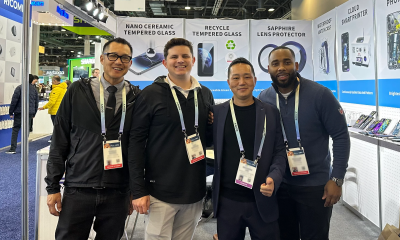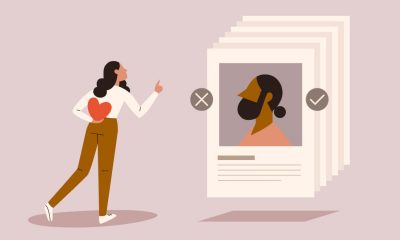Technology
Social media use connected to higher acceptance of cosmetic surgery

Thanks to Snapchat and Instagram “pretty” filters, it’s easy to imagine what you would look like with larger eyes, a flatter nose, and fuller lips.
A new study finds that social media might not just be distorting how we want to look in the digital realm. It could also be related to how we feel about going under the knife IRL.
Users of certain social networks and photo editing apps were more accepting of cosmetic surgery generally, and more likely to consider getting plastic surgery themselves, according to a study from Johns Hopkins researchers published Thursday in the Journal of the American Medical Association (JAMA).
The study could help doctors better understand their patients — or decide which social networks are filled with potential new customers.
According to the study, people who use more social media overall had higher rates of acceptance of plastic surgery, especially users of Tinder, YouTube, and Snapchat filters. Meanwhile, Instagram filter and VSCO users were more likely to consider plastic surgery for themselves — but not have an accepting attitude toward it in general.

Facetune’s website entices users to, “Wow your friends with every selfie.”
“I think most cosmetic surgeons would predict these outcomes,” said Amishav Bresler, a senior resident at Rutgers who has published on plastic surgery trends and was not involved in the study. “Social media seems to create an almost competitive aesthetic undercurrent that places incredible pressure on young adults.”
The study doesn’t claim that using Tinder or Snapchat causes people to be OK with cosmetic surgery. It says that social media use and acceptance of cosmetic surgery are connected in some way.
Essentially, the study claims that people who spend a lot of energy on how they present themselves on social media are more likely to be open to cosmetic surgery in real life. The nature of each social network — say, how visual it is, or whether it emphasizes talking to strangers over friends — could also factor into how they feel about it.
There is a growing body of scientific literature that documents how social media and photo filters are affecting cosmetic surgery requests. Notably, a study found that 55 percent of cosmetic surgeons have reported that patients have brought in photos of themselves, filtered to have larger eyes or flatter noses thanks to dreamy automatic filters on Snapchat or Instagram, and asked surgeons to make them resemble their filtered selves. This new study paints a more complete picture about some of the attitudes behind those requests.
For the JAMA study, the researchers surveyed 252 participants, all over the age of 18, with a mean age of just under 25 years old. They asked users a series of questions about their social media and photo editing usage, including how much time they spend on social media, which platforms they use, whether they edit their social media photos, how often, and which editing tools they use (e.g. Photoshop, VSCO, or Snapchat or Instagram filters).
Next, they asked users to rank multiple factors about their self-esteem, their attitude about plastic surgery, and whether they would consider cosmetic surgery. With these answers, they were able to compare the answers between app users and non-users.
The study found that people who spent a lot of time on Facebook or WhatsApp had neutral attitudes about cosmetic surgery, perhaps because those services are more about messaging friends. On the other hand, Tinder, YouTube, and Snapchat users were more open to procedures.
“Why do you think plastic surgeons have Instagram and Facebook accounts?”
The researchers posited that users of visually focused platforms in which users compare their appearance with others, or serve themselves up for comparison, were more likely to be focused on how they looked.
“Validation of self-worth is a prominent motivation for people to join and use Tinder, likely contributing to the higher [acceptance of plastic surgery] scores among its users,” the study authors wrote.
People who used photo editing platforms didn’t have differing attitudes from non-users. The researchers think that editing photos may be so ubiquitous that it doesn’t necessarily say anything about its users.
But of those who used photo editing apps, 13 percent changed their face shape and facial features (as opposed to making edits in lighting, for example). Those people did show increased acceptance of cosmetic surgery.
While outside experts described the study as “sound,” and said the conclusions made sense, they also noted its limitations. Namely, the sampled user base was particularly young, and not necessarily representative of national averages, nor reflective of the age of most cosmetic surgery patients. Additionally, the study represents a snapshot in time, as opposed to following subjects over multiple years to see how their attitudes evolved.
“It would be interesting to note how people’s attitude to cosmetic surgery changed over time as they progressed from pre-adolescents with no social media through adulthood,” Bresler said.
So why is it important to know how social media users feel about plastic surgery? On the generous end of the spectrum, physicians writing in commentary accompanying the study say that it can help plastic surgeons discern whether a patient is a good candidate for plastic surgery. Or, if perhaps social media had caused them to struggle with self-esteem, and they would be better served by a mental health professional than a surgeon.
“Facial plastic surgeons are uniquely positioned both to directly help our patients improve self-esteem and to refer for mental health care when there are concerns that go beyond the knife and needle,” the commentary authors write.
But perhaps, more cynically, it could show physicians which social networks are the most fertile ground for advertising.
“The fact that we know that patients who use these platforms are more open to procedures makes sense from a marketing perspective,” said Boris Paskhover, a surgeon who peer reviewed the JAMA study, and who has published on the effects of social media on surgery before. “Why do you think plastic surgeons have Instagram and Facebook accounts?”
Still, this study could help medical professionals understand motivations for surgery, and suss out how best to help patients.
“Although this study does not establish causation due to the scientific methodology, this association should be recognized,” Bresler said. “Beginning to understand how social media and the photo editing culture our patients are living in is the first step to navigating our patients through this newly enhanced world.”

-

 Business6 days ago
Business6 days agoLangdock raises $3M with General Catalyst to help businesses avoid vendor lock-in with LLMs
-

 Entertainment5 days ago
Entertainment5 days agoWhat Robert Durst did: Everything to know ahead of ‘The Jinx: Part 2’
-

 Entertainment5 days ago
Entertainment5 days agoThis nova is on the verge of exploding. You could see it any day now.
-

 Business5 days ago
Business5 days agoIndia’s election overshadowed by the rise of online misinformation
-

 Business4 days ago
Business4 days agoThis camera trades pictures for AI poetry
-

 Business5 days ago
Business5 days agoCesiumAstro claims former exec spilled trade secrets to upstart competitor AnySignal
-

 Business7 days ago
Business7 days agoScreen Skinz raises $1.5 million seed to create custom screen protectors
-

 Entertainment7 days ago
Entertainment7 days agoDating culture has become selfish. How do we fix it?






















